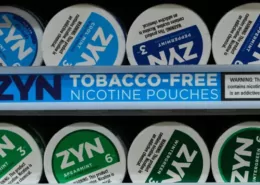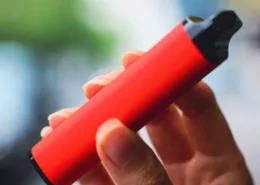Poland Delays Disposable Vape Ban Amid Youth Vaping Surge
The Polish Ministry of Health has postponed its plans to ban disposable e-cigarettes, opting instead for a less stringent approach to address the growing “plague” among teenagers. This decision comes as health experts and children’s rights advocates warn of the alarming rise in vaping among Polish youth.
Ministry Shifts from Ban to Age Restriction
Health Minister Izabela Leszczyna initially described disposable, flavored e-cigarettes as “a plague” sweeping through Polish schools. With over 100 million “disposables” sold in Poland last year, the Ministry of Health announced in February its intention to completely ban their sale by summer. However, the government has now pivoted from this hard-line stance.
Instead of implementing a total ban, the Ministry now proposes to raise the legal age for purchasing nicotine-free e-cigarettes to 18, mirroring the restrictions on nicotine-containing products. This shift in policy has left many questioning its effectiveness, as studies show minors already easily circumvent existing age restrictions.
Deputy Minister of Health Wojciech Konieczny had previously advocated for a strict ban, stating:
“When it comes to disposable e-cigarettes, in my opinion only a ban, and a fairly strict one at that, can lead to success, because otherwise manufacturers will look for loopholes, shortcomings in the regulations and it will not fulfill its role. I favor a complete ban on disposable e-cigarettes.”
The Scale of the Problem
Recent studies reveal a worrying picture of e-cigarette use among Polish youth:
- The Polish Society of Medical Advances “MEDYCYNA XXI” surveyed 1,000 teenagers nationwide:
- Nearly one-third of 16-17 year-olds have had contact with nicotine.
- 57.78% of these minors first used e-cigarettes, compared to 40.95% who started with traditional cigarettes.
- Among nicotine users, 78.1% regularly vape.
- 87% of teenagers prefer fruit or sweet flavors in their e-cigarettes.
- The PolNicoYouth study by the National Institute of Public Health – National Institute of Hygiene surveyed over 16,000 young people from 200 Polish secondary schools:
- Over 37% of teenagers admit to smoking cigarettes or using e-cigarettes.
- Almost 44% of minors purchase flavored e-cigarettes in stores without difficulty, despite legal prohibitions.
Children’s Rights Ombudsman Calls for Action
Monika Horna-Cieślak, the Children’s Rights Advocate, has appealed directly to Minister Leszczyna, highlighting Poland’s position among the leading EU countries in youth e-cigarette use:
“Poland ranks among the leading European Union countries in terms of the declared use of disposable cigarettes by people under 18. Every fourth person in this age group declares that they use them. Between the ages of 12 and 15 – as many as 25 percent of girls and almost 21 percent of boys use these products.”
Horna-Cieślak argues that current legal regulations fail to sufficiently implement the objectives of the Act on the Protection of Health against the Consequences of Using Tobacco Products and the nicotine addiction prevention directions outlined in the National Health Program for 2021-2025.
Market Realities and Regulatory Challenges
The Market Monitoring Center points out that nicotine-free e-cigarettes, or “zeros,” represent only a small market share. The vast majority of sales come from nicotine-containing disposables. This reality suggests that the Ministry’s new proposal may address only a fraction of the actual problem.
Adding to the complexity, over 90 percent of disposable e-cigarettes sold in Poland feature fruit, drink, or sweet flavors. Nearly all contain nicotine, and the majority originate from China – a country that has banned the sale of fruit-flavored e-cigarettes domestically due to their appeal to children.
Looking Ahead
As Poland grapples with this public health challenge, the coming months will likely see continued debate over the most effective approach to curb youth vaping. Health experts, policymakers, and children’s advocates will closely watch the impact of the new age restrictions and may push for more comprehensive measures if the trend continues unabated.
The government’s response to this issue will play a crucial role in shaping the health landscape for Poland’s youth in the years to come.
Source: Jednorazowe e-papierosy zostają. Ministerstwo Zdrowia zwleka z zakazem
- Malaysia Negeri Sembilan Backs Vape Ban, Awaits Clear Laws - August 5, 2025
- Is It Illegal to Vape or Smoke While Driving in Massachusetts? - August 5, 2025
- Austria Plans to Ban Disposable E-Cigarettes - August 5, 2025








